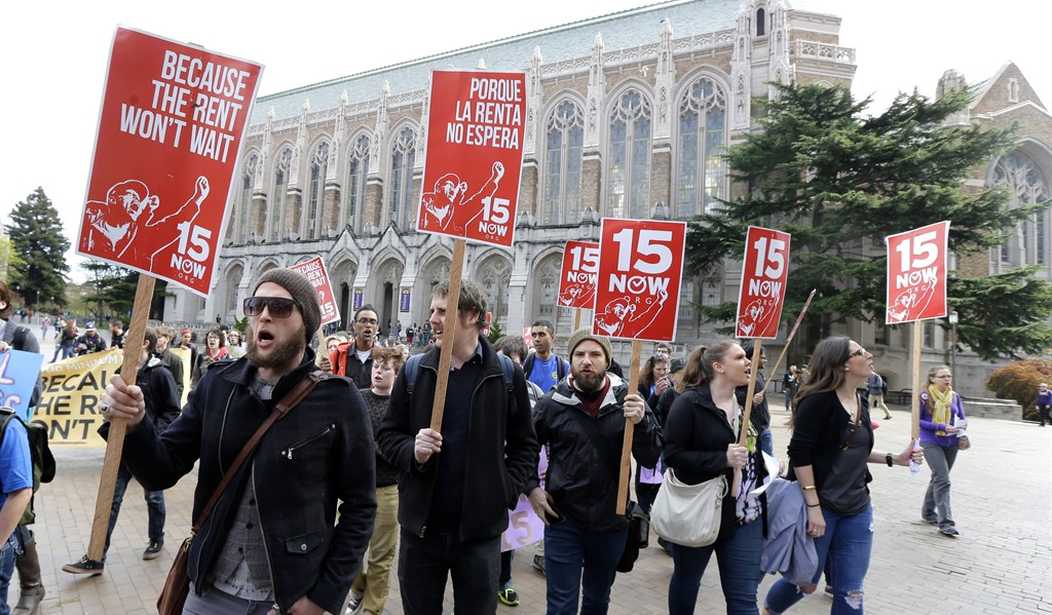On Tuesday, Democrats introduced a bill that would raise the minimum wage nationally to $15 an hour over five years. That would more than double the current minimum wage of $7.25 an hour.
The Raise the Wage Act would increase pay to $9.50 an hour in 2021, $11 in 2022 before rising n in 2023 to $12.50 per hour. The minimum wage under the legislation would tick upward to $14 in 2024 and then $15 in 2025.
Job losses from the minimum-wage hike would be at least 1.3 million, according to the Congressional Budget Office. But most economists who aren’t socialists think that number will be much higher.
“Let us be clear. The overwhelming majority of Americans support raising the minimum wage to $15 an hour. This is not a radical idea. This is what the American people want,” Sen. Bernie Sanders, I-Vt, said during a press conference before lawmakers introduced the legislation.
The self-described democratic socialist argued that Congress should pass the legislation through reconciliation, which would require a simple majority of Democrats have in the Senate. The Senate is split 50 to 50.
Sanders is telling the truth. Two-thirds of Americans support a minimum wage hike to $15 an hour, including 43 percent of Republicans. Eighty-three percent of Democrats support the increase.
But asking people if everyone should get paid more is a ludicrous question in the first place. Ask them if they support an increase if it costs them their job and not many would raise their hands.
It’s not just jobs that would be lost. It’s jobs that wouldn’t be created. And the economic fallout from reduced employment will cost others their jobs as well.
Raising wages that much, that fast, is a bad idea. But there are ways to lessen the negative impact on the economy.
“To mitigate potentially negative impacts, the minimum could be applied in more nuanced ways to account for regional differences as well as scale of the enterprise and phased in over a period of years,” Hamrick said, according to NBC.
How about making several tiers of a minimum wage, including one for teenagers and first-time jobholders? Phasing the increase in over 7 or 8 years could also be done. There are alternatives to the Democrats’ all-or-nothing approach that would lessen the blow to small businesses — many of which will be threatened with extinction by passing a $15 an hour minimum wage.
This is a terrible time to raise the minimum wage. Job losses are rising and many states are still in restrictive lockdowns. And how many jobs will be lost when companies decide to automate?
Yuci Chen, a labor economist with the UpJohn Institute, argues doubling the minimum wage could potentially push businesses to rely on machines and automation over manual labor.
“It is important for policymakers to keep in mind that different states have different industry composition … so a $15 minimum wage may not necessarily fit all states,” Chen told Sinclair Broadcast Group, noting that such a large increase could especially impact states like West Virginia, which has a minimum wage of $8.75.
Democrats think they’re doing the working poor a favor by raising the minimum wage. In fact, they’re pricing people out of the job market, continuing the cycle of poverty, and hurting single parents.
But it looks great on a bumper sticker.










Join the conversation as a VIP Member